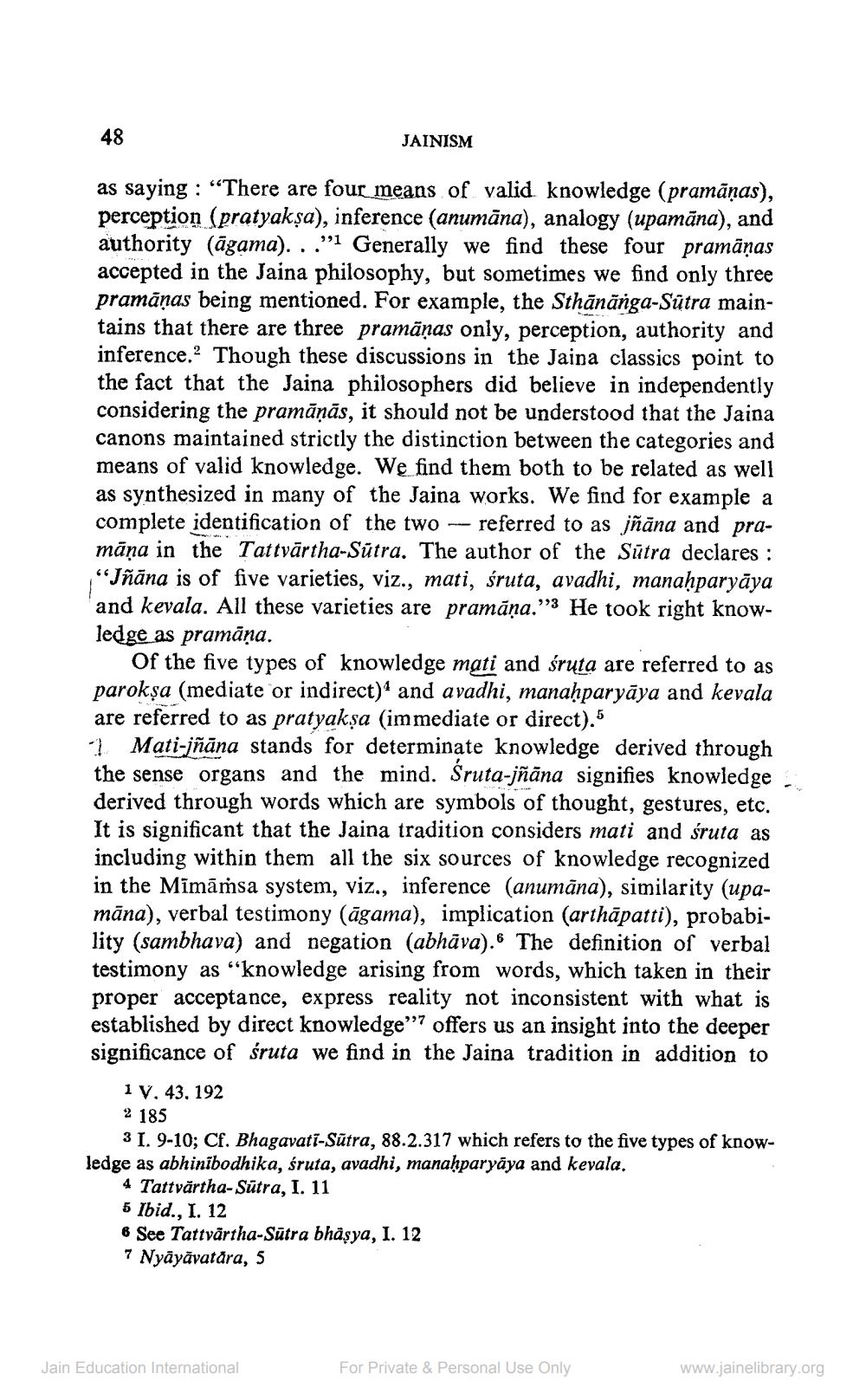________________
JAINISM
as saying : “There are four means of valid knowledge (pramāņas), perception (pratyakşa), inference (anumāna), analogy (upamāna), and authority (agama)..."1 Generally we find these four pramāņas accepted in the Jaina philosophy, but sometimes we find only three pramāṇas being mentioned. For example, the Sthānānga-Sütra maintains that there are three pramāṇas only, perception, authority and inference. Though these discussions in the Jaina classics point to the fact that the Jaina philosophers did believe in independently considering the pramāņās, it should not be understood that the Jaina canons maintained strictly the distinction between the categories and means of valid knowledge. We find them both to be related as well as synthesized in many of the Jaina works. We find for example a complete identification of the two -- referred to as jñāna and pramāņa in the Tattvārtha-Sūtra. The author of the Sūtra declares : “Jñāna is of five varieties, viz., mati, śruta, avadhi, manaḥparyāya and kevala. All these varieties are pramāņa.”3 He took right knowledge as pramāņa.
Of the five types of knowledge mati and śruta are referred to as parokşa (mediate or indirect)" and avadhi, manaḥparyāya and kevala are referred to as pratyakşa (immediate or direct).5 1 Mati-jñāna stands for determinate knowledge derived through the sense organs and the mind. Sruta-jñāna signifies knowledge derived through words which are symbols of thought, gestures, etc. It is significant that the Jaina tradition considers mati and śruta as including within them all the six sources of knowledge recognized in the Mīmāṁsa system, viz., inference (anumāna), similarity (upamāna), verbal testimony (āgama), implication (arthāpatti), probability (sambhava) and negation (abhāva).6 The definition of verbal testimony as “knowledge arising from words, which taken in their proper acceptance, express reality not inconsistent with what is established by direct knowledge" offers us an insight into the deeper significance of śruta we find in the Jaina tradition in addition to
1 v. 43. 192 2 185
3 1. 9-10; Cf. Bhagavati-Sūtra, 88.2.317 which refers to the five types of knowledge as abhinibodhika, śruta, avadhi, manahparyāya and kevala.
4 Tattvärtha-Sutra, I. 11 5 Ibid., I. 12 6 See Tattvärtha-Sūtra bhäşya, I. 12 7 Nyāyāvatara, 5
Jain Education International
For Private & Personal Use Only
www.jainelibrary.org




